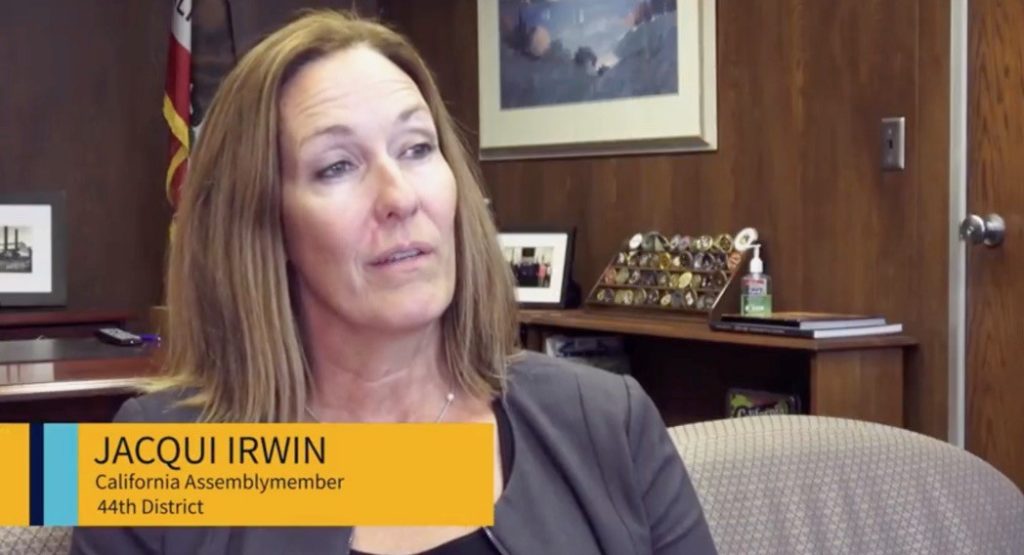As of Jan. 1, 2018, all California Community College students can directly enroll into transfer-level English and math courses, eliminating daunting assessments and making remedial coursework obsolete for many.
The law, AB 705, was inspired in part by data from the California Acceleration Project (CAP), a faculty-led professional development network, that showed students are more likely to succeed in transfer-level courses when they are given immediate access, as opposed to drowning in years of remedial coursework. But do students know how this new law can change their college experience?
“AB 705 is a huge shift for community colleges, an almost 180 degree turn,” said CAP Co-founder Katie Hern, who helped author multiple reports that led to the legislation.
“Peralta students need to know their rights, and they have a right to enroll in transfer-level classes. The research shows they have a much higher chance of completion when enrolled in transfer-level classes, and [students] should take with skepticism any advice to not enroll in [transfer-level classes],” Hern said.
Hern said students who do not feel confident about taking transfer-level courses should enroll in co-requisite supported courses before “enrolling down” by taking a course below transfer-level.
A second bill passed last year, AB 1805, which formally requires colleges to inform students of their rights to access transfer-level courses directly. The bill also requires community colleges make their placement policies and placement results public.
However, the latest CAP report, released last month, is critical of how these changes are being communicated to students, explaining that none of the colleges examined in the report have “provided enough information for students to make an informed decision.”
The report emphasized the importance of publicizing enrollment data. For instance, if a student has a 1.9 grade point average (GPA), their chance of passing, or “success” in a college level English is 43%. The same student’s chance of success in a remedial English course is 12%, and Hern thinks that knowing is half the battle.
“I feel like knowledge of the bill is being spread by word of mouth,” Associated Students of Laney College President Terance Williams said, adding that he was informed by a counselor about his right to enroll in college level math and was told that he should wait before enrolling in a remedial course.
The CAP report — entitled Getting There Are California Community Colleges Maximizing Student Completion of Transfer-Level Math and English? — looked at 47 campuses that were “early adopters” of AB 705 and showed that students with a GPA of 1.9–2.59 have double the success rate when entering directly into transfer-level English than remedial English. In math courses, the numbers were similarly compelling — a student with a GPA below 2.3 had triple the success rate in college level courses, at 29%. With the number of students passing in remedial courses was at 8%.
The RP group, a nonpartisan, nonprofit education organization that provides research and planning assistance to California community colleges, has analyzed the effects of AB 705 using data from 2017–2018 and reports that the success rate in transfer-level English increased by 80% from fall 2017 to fall 2018. In addition, The RP Group found that the success rate in transfer-level math courses more than doubled in the fall 2018. The greatest gains in transfer-level success were made by students of color.
Fall 2019 is the deadline for all California Community Colleges to comply with AB 705. Although colleges will vary on how they are implementing the new law, they are required to allow all students the opportunity to enroll into transfer-level courses — including first-year students.
The intention of the law is to “maximize the probability that a student will enter and complete transfer-level coursework in English and mathematics within a one-year timeframe.” This law guarantees access to transfer-level courses, so students no longer need to score highly on placement tests to begin at transfer-level courses. The bill does not require schools to inform students of the bill, or modify their class offerings and schedules.
Schools that still offer more remedial than transfer-level courses, or a large amount of remedial courses, are considered “weak implementers” of the legislation by CAP. The access issue is exacerbated when schools are in isolated areas and students aren’t given the choice to enroll directly into transfer-level. Because the intent of the legislation was to close the achievement gap by granting access to student populations who historically were less likely to be given immediate access to transfer-level courses, these weak implementers can get in the way of students knowing and understanding their rights, according to Hern.
The CAP report also cited anxiety as a contributor to the lower success rate in remedial courses. Students struggle when the completion of their goal seems so far away.
Less than half of community college students transfer within six years, according to a 2018 report by the Student Success Initiative (SSI). The intent of AB705 is to not only provide access but to accelerate the time it will take to students to transfer to a four-year university. Exacerbating the problem is the fact that financial aid is limited to 60 units and many remedial courses don’t count toward transfer — creating a conundrum for students.
“This bill can change the perception of community colleges. People have a fear that once they enter community college they will be stagnant, but this bill can help remove that feeling,” said Williams, who feels that the self-placement aspect of the bill helps build trust that students know what the best choice is for them.
David M. Johnson, Vice President of Instruction at Merritt College, explained that even though implementation of AB 705 is complicated, it holds tremendous potential. Most essential to student success in transfer-level coursework could be the option of beginning transfer-level coursework with co-requisite support, which often involves supplemental instruction, tutoring and support to ensure students can succeed in transfer-level coursework.
“The full implications of the legislation have yet to be realized. But AB 705 is clearly a sea change. We are very excited that our students now have the opportunity to enroll directly into transfer-level English and math courses — it creates a shorter path to achieving their academic goals,” Johnson said.
“At the same time, however, we understand that providing students with additional tutoring, supplemental instruction, and other support services is absolutely critical to ensuring their academic success.”
For more information on AB 705, visit the state’s website or watch a short video here.



























